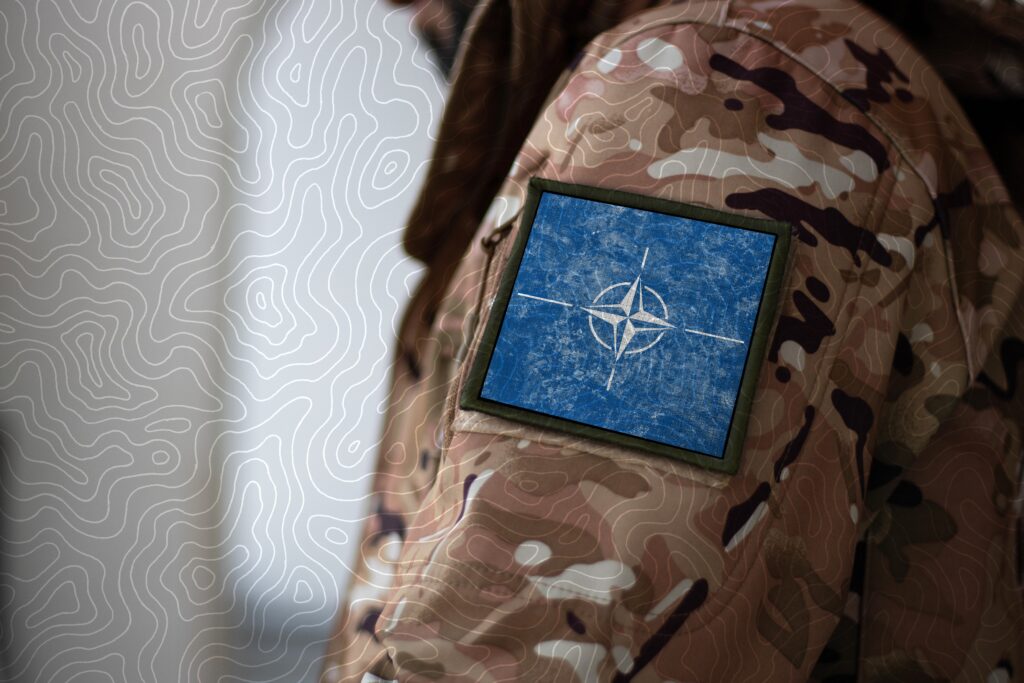NATO Secretary General Mark Rutte met with top U.S. officials in Washington on Thursday, just two months before he chairs the NATO summit in the Netherlands. During his visit, Rutte called on all 32 NATO member countries to increase defense spending and political unity. His message comes at a time when the U.S. appears to be shifting its focus away from European security, raising concerns about future cooperation.
NATO Pushes for Higher Defense Budgets
In his annual report, Mark Rutte stressed that NATO’s strength relies on every member sharing both costs and responsibilities. “Our freedom and prosperity require NATO to remain a military advantage for every ally,” he stated.
He quietly released the report online without holding a press event or media briefing. NATO has not explained the change in its communication strategy, which some analysts view as a sign of growing caution amid internal disagreements.
The report underlines the need for members to invest more in their military capabilities. NATO leaders are expected to discuss new defense targets at the upcoming July summit in the Netherlands.
Defense Spending Still Falls Short
Despite past promises, only 22 out of 32 NATO members met the target of spending 2% of their GDP on defense in 2023. This is one less than previous estimates. The countries that missed the goal include Belgium, Canada, Croatia, Italy, Luxembourg, Montenegro, Portugal, Slovenia, and Spain.
While the U.S. spent 3.19% of its GDP on defense in 2024—down from 3.68% in 2014—it still pays more than all other NATO nations combined. Last year, NATO allies spent a total of about $1.3 trillion (€1.1 trillion) on defense.
Rutte’s call for action reflects the alliance’s growing concern about fair burden-sharing. With the U.S. seemingly stepping back, European nations are expected to take more responsibility for their own security.
Growing Concerns Over U.S. Commitment
Since February, NATO has faced growing uncertainty about U.S. involvement. U.S. Secretary of Defense Pete Hegseth told European officials that America would take a smaller role in European defense matters. He also said Ukraine would not fully regain its territory or become a NATO member.
This shift in tone has caused unease among European allies. Rutte’s report, while cautious, reaffirms continued support for Ukraine. He noted that allies remain committed to a peaceful and fair outcome, even as U.S. backing declines.
Rutte’s careful wording contrasts with his predecessor Jens Stoltenberg. Stoltenberg had strongly stated that Ukraine’s success was essential to NATO’s core mission. Rutte, while still supportive, chose a more measured approach.
NATO’s Unity Tested by Internal Strains
Although NATO publicly maintains a united front, internal debates continue. The alliance is under pressure to rethink its defense plans, especially as global threats evolve. Rutte’s report makes clear that NATO’s success depends on members working together more closely.
Experts believe that Europe must act fast. “If the U.S. pulls back, European countries need to fill that gap,” said Anika Bauer, a defense analyst with the European Policy Centre. “That means real investment, not just promises.”
Rutte’s push for stronger political will and higher defense budgets reflects a key challenge ahead of the summit. With growing cyber threats, rising tensions with Russia, and continued unrest in regions like the Middle East and North Africa, NATO must adapt quickly.
Ukraine Remains a Central Issue
Despite the U.S. stepping back, many NATO members continue to support Ukraine. The country still receives military aid, training, and intelligence from allies. While NATO has not offered Ukraine full membership, its support remains vital in deterring Russian advances.
Ukraine’s leaders, however, are seeking more direct commitments. President Volodymyr Zelenskyy recently urged NATO to speed up its support. “We need results, not just words,” he told reporters in Kyiv.
With Ukraine’s future still uncertain, NATO’s next steps will be watched closely. The summit in July may set the tone for how the alliance handles conflict and cooperation going forward.
Europe Must Take the Lead
As NATO heads toward its major summit, Secretary General Rutte is urging members to prepare for a future where U.S. leadership is less certain. His report calls on countries to boost defense budgets and deepen cooperation.
The message is clear: NATO cannot depend on one member alone. Every country must share the burden. With rising global threats, Europe’s role in its own defense has never been more important.


